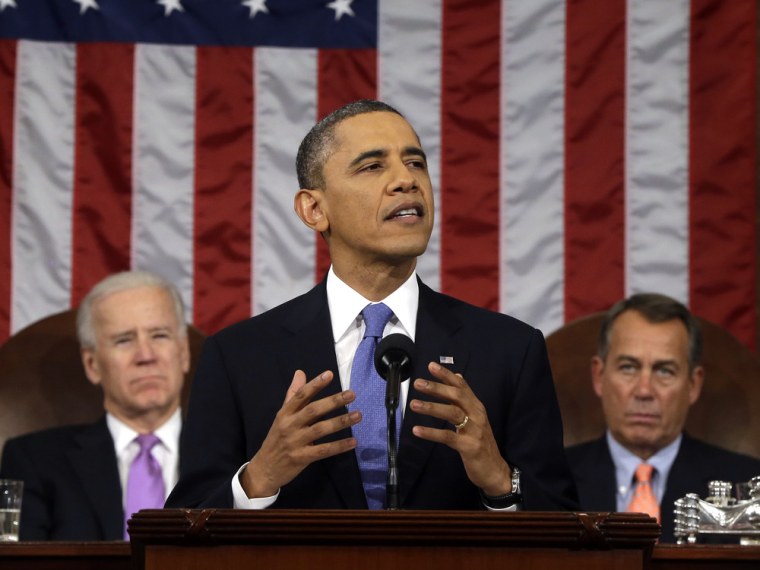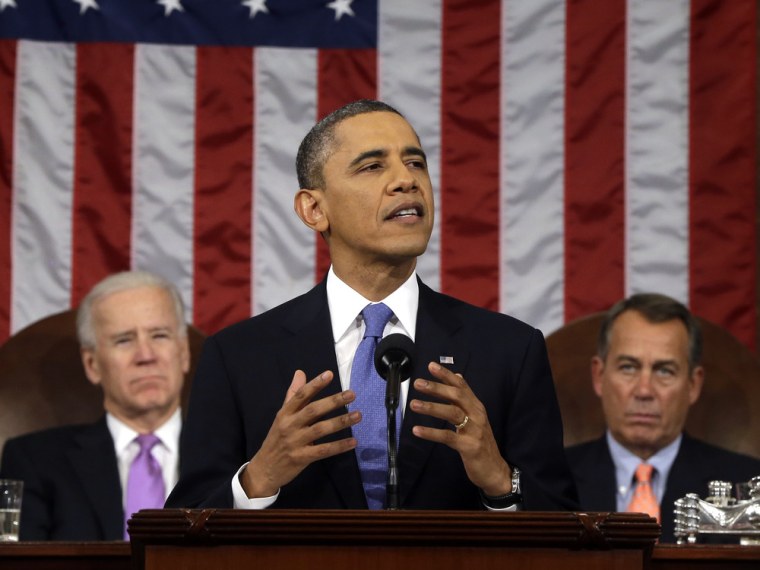
President Barack Obama's job approval ratings are currently stuck at 43 percent. Republicans in Congress have it even worse, with a paltry 24 percent of Americans giving them the thumbs up, according to the latest NBC News-Wall Street Journal poll.
Tuesday night's State of the Union address should be the perfect opportunity for Facebook users to criticize Obama or let a zinger loose against House Speaker John Boehner, R-Ohio. But a new study from the Georgia Institute of Technology says most people will keep their opinions to themselves — or only share them with liberals or conservatives who agree with them.
The study looked at politically active Facebook users during the course of gay marriage, gun control and budget debates. The result? When a majority of a user's friends had different political opinions, he or she simply used Facebook less instead of engage in debate.
Those who did share their opinions about the Affordable Care Act or the government shutdown were mostly met with "Likes."
“People are mainly friends with those who share similar values and interests" in a "phenomenon called homophily," wrote Catherine Grevet, the Georgia Tech Ph.D. student who led the study. "But that means they rarely interact with the few friends with differing opinions."
In a political climate where people won't even live on the same street as someone from the opposing party, that isn't much of a surprise. The situation on Facebook is made even worse, said the study, by the fact that the algorithm that determines what users see in their News Feeds favors people with whom they interact most.
There were rare cases where political "debate" did occur. Not surprisingly, they usually did not result in people changing their minds. A quote from one respondent in the study:
We’ll have conversations that reach 80 comments. Um... and like most political debates on Facebook it doesn’t just stick to gun control, you go all over the map and then end up back on the same spot where you were and then we just agree to disagree
Still, even the most partisan rant didn't result in people using Facebook's own "nuclear option": unfriending someone. Only 18 percent of social media users had ever blocked, hid or completely cut ties with someone who they disagreed with about politics online.
Instead, they simply ignored the offensive posts and, presumably, engaged in the time-honored tradition of complaining about it to their significant other.
Keith Wagstaff writes about technology for NBC News. He previously covered the tech beat for TIME's Techland and wrote about politics as a staff writer at TheWeek.com. You can follow him on Twitter at @kwagstaff and reach him by email at: Keith.Wagstaff@nbcuni.com
